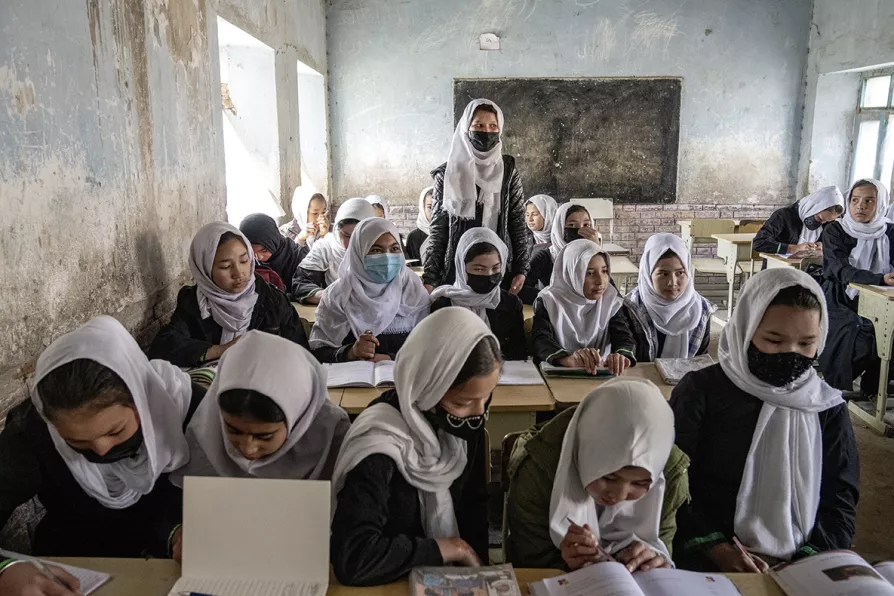Afghanistan ‘cannot move forward’ as girls banned from attending school, UN child agency warns

 Afghan girls attend school in a classroom, in Kabul, March 25, 2023
Afghan girls attend school in a classroom, in Kabul, March 25, 2023
“NO country can move forward when half its population is left behind,” the United Nations’ children’s agency warned today as Afghanistan’s ban on girls attending school became 1,000 days old.
Unicef executive director Catherine Russell urged Taliban authorities to allow all children to resume learning immediately and called on the international community to support Afghan girls, who need it more than eve, she said.
The agency estimates that more than one million girls are affected.
Similar stories

The failure of international institutions, from the UN to the ICC, to hold the Taliban accountable for the brutal repression of women creates a climate of tolerance for daily crimes by the patriarchal regime, writes SHUKRIA RAHIMI













